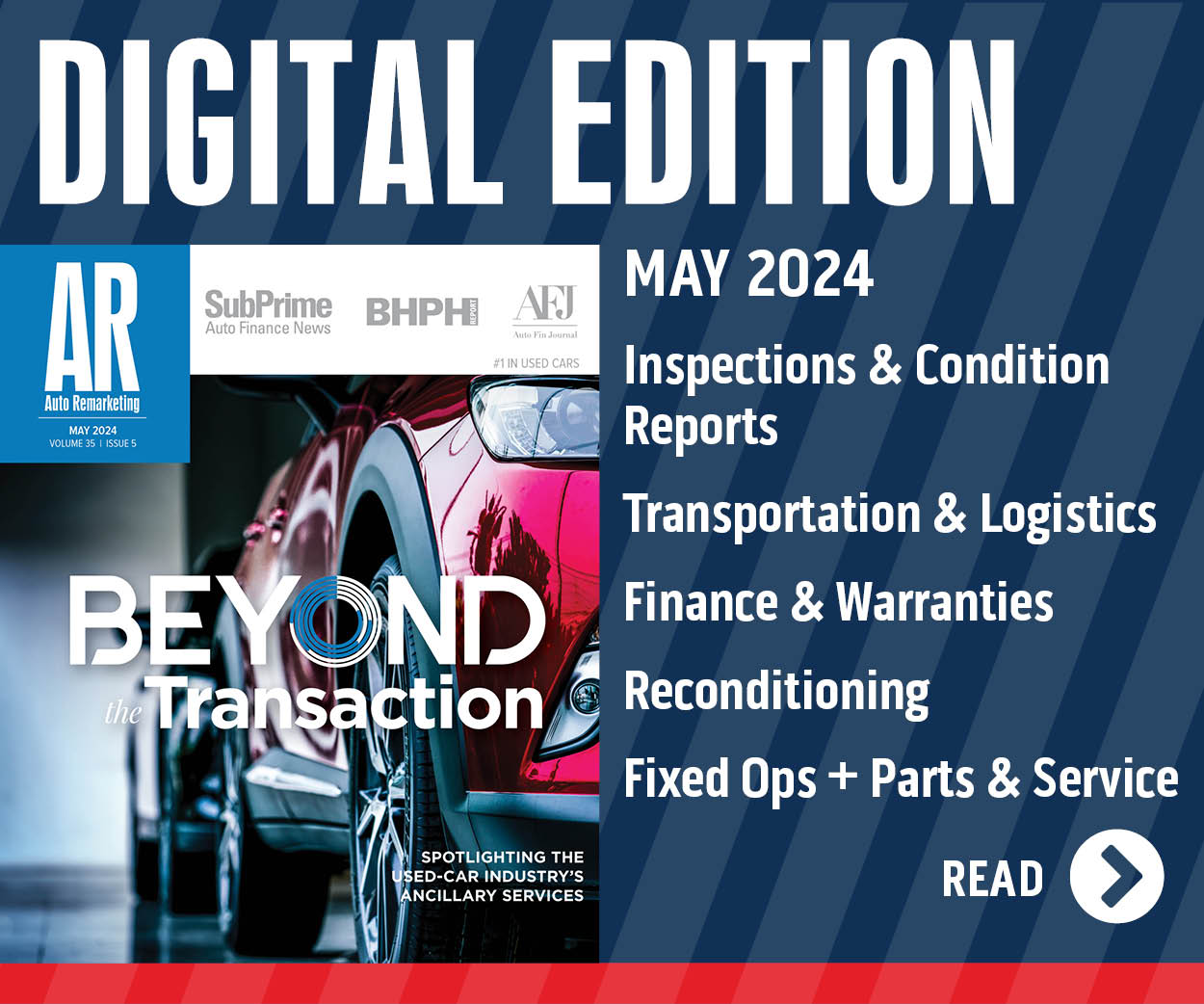COMMENTARY: AI and auto — perfecting pricing strategies

New technology holds radical possibilities for the automotive industry at every level of the sales funnel. Artificial intelligence (AI) is already being used for enhancing promotional images, creating videos, and providing other helpful additions to marketing.
AI for merchandising is not the only way this innovative new technology is shifting the auto remarketing industry, however. Auto dealerships are also embracing new AI tools for enhancing customer service and reshaping how they price their vehicles.
With its capacity to process huge amounts of data almost instantaneously and its ability to reveal patterns from wide varieties of data, AI seems like the prime candidate for revolutionizing pricing strategies in auto remarketing.
So in this article, we will explore how AI tools can help used-car dealers stay ahead of the trends with advanced sales data analyses, in addition to investigating real-world examples of AI as it has been applied to provide dynamic, more effective prices.
The benefits of using AI to shape pricing strategies for remarketing
AI is revolutionizing the way used car dealerships are able to compile information, as it reveals the optimal price points for each of the automobiles they intend to sell. But how does this benefit marketers in the auto industry?
Reality-based pricing: Likewise, AI provides enhanced data analysis capabilities that can hugely surpass traditional book value pricing strategies. In a traditional book value pricing method, auto remarketing dealerships list the base retail value on their website, leaving out factors such as mileage and vehicle condition.
This serves as a starting point for the ultimate price of the vehicle and can be a negotiating tactic for dealerships. But this approach can also scare off potential customers who may feel hesitant to purchase based on this uncertain starting point.
Thus, car dealerships are somewhat forced to rely on superficial charm and the sales skills of the employees to close a deal. With AI-adjusted pricing, however, they can avoid all that and instead attract potential buyers with transparency and honesty.
Transparency and trust: After generating a pricing report based on all the key parameters, both customers and retailers can easily sort through information such as the make, model, and year of each car, which ensures a fast and straightforward comparison among similar vehicles.
In addition, customers will be more likely to trust the pricing, since it comes from an objective source that’s less likely to hold a biased stance.
How AI data analysis reveals ideal vehicle price points
Recognizing key parameters: In auto remarketing, AI algorithms analyze a myriad of data points such as vehicle age, mileage, and condition to set the right price for each used vehicle. Paired with AI data analysis that tracks broader real-time market trends and identifies customer preferences and requirements, used car dealerships can provide buyers with flexible real-time pricing.
Generating product recommendations: Once the AI model has received enough training on a car dealership’s inventory, as well as customer data, it can also start generating product recommendations, descriptions, and even personalized emails in retargeting campaigns.
Direct and precise recommendations are key, as people on the market for used cars are much more willing to negotiate than when they’re, let’s say, shopping for clothes or a laptop.
In that case, the AI can simply scoop up search-related information, and generate recommendations around the same price point, located nearby, and equipped with all the features they’ve been looking for. For any dealership or used car marketplace, this boosts engagement and gives websites many more chances to make a conversion, instead of just one.
Learning from other industries
Although the used car industry has always been fairly innovative, it’s fair to admit that dynamic price is an adopted feature. In fact, this level of detailed analysis has become standard across various industries. For example, an app for groceries also works by analyzing multiple variables like seasonal demand and stock levels to dynamically adjust pricing.
In fact, Uber and Lyft, two rideshare giants intrinsically connected to the automotive industry, have been using AI and deep learning for dynamic pricing for years now. Likewise, Airbnb’s Smart Pricing feature has opened new doors for users to adjust their nightly rates.
The same holds true for the auto remarketing industry, where AI algorithms work with diverse data types to reveal patterns and identify accurate price points.
In addition, AI analysis tools can predict upcoming market fluctuations, allowing your dealership to align price points with the future rises and falls of the marketplace.
For instance, if the new Nissan Altima is highly sought after, an AI model can track the demand and raise the price while the dealership focuses on enhancing other aspects of the business.
Likewise, if there’s a controversy surrounding Elon Musk again, a dealership can gain a head start over the competition and start offloading their excess Tesla stock at a competitive, and reality-based price.
Generative AI analysis to ensure maximum ROI
Generative AI allows auto marketing professionals to adjust the individual price points for each vehicle. By accomplishing this, they can ensure that every price quoted is based upon real-time market fluctuations, diverse financing options, and up-to-date customer trends.
In addition, auto marketing professionals can use generative AI tools to provide enhanced security measures to upgrade their security significantly. From simulating AI-altered IDs to generating synthetic fraud messages and patterns, the true ability of these tools lies in training employees in the pre-owned industry.
Who knows — the world might also be on the cusp of widely available AI cybersecurity tools, ones that are able to fully simulate attacks. Whether it’s websites, internal networks, or cloud servers, auto industry professionals will have their hands full finding ways to better secure their IT infrastructures.
And, beyond bolstering cyber defenses and reducing mitigating costs, AI models and AI-powered tools can conduct analyses that lead to optimal returns on investment for auto remarketing dealerships. As such, generative AI also provides in-depth reports, charts, and pattern identifications.
These visual interpretations can contribute to the overall business strategy and can help auto remarketing dealerships with the capacity to shape their future business directions.
Final thoughts
From in-depth assessments of market value to highly detailed data analyses drawn from a wide variety of sources, artificial intelligence provides auto remarketing dealerships with enhanced, highly sophisticated capabilities that introduce expanded transparency and pattern identification for fairly priced vehicles.
In addition, by analyzing the current trends in the marketplace, consumer preferences, and upcoming industry fluctuations, remarketing professionals can use AI to provide optimal price points that satisfy customer needs, offer maximum returns on investment, and result in increased numbers across the board.
Tim Fries is a financial analyst, writer, and co-founder of The Tokenist, a digital platform that covers news, insights, and analysis related to cryptocurrency, blockchain technology, and financial markets. He has written extensively on topics such as finance, investing, and emerging technology, particularly in the field of cryptocurrencies and blockchain.

 View The Latest Edition
View The Latest Edition

